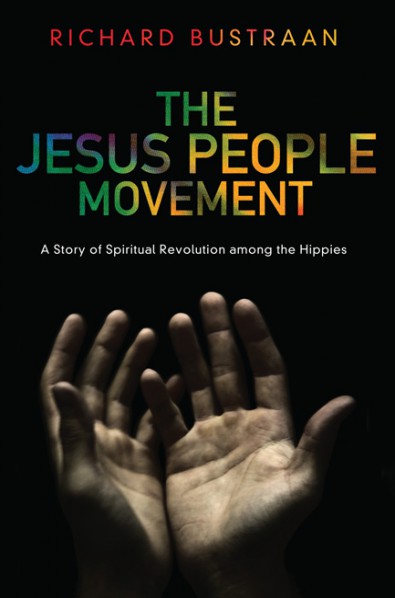Richard Bustraan: The Jesus People Movement
 Richard A. Bustraan, The Jesus People Movement: A Story of Spiritual Revolution Among the Hippies (Eugene, Oregon: Pickwick Publications, 2014), 238 pages.
Richard A. Bustraan, The Jesus People Movement: A Story of Spiritual Revolution Among the Hippies (Eugene, Oregon: Pickwick Publications, 2014), 238 pages.
In Richard Bustraan’s work, The Jesus People Movement, the author aims to describe and trace the Jesus People Movement within Pentecostal historiography. Although this work is a comprehensive research thesis, non-academic readers will be able to appreciate and enjoy Bustraan’s work. It’s content covers and tracks the movement from it’s inception in 1967 to the end of the 1970’s all the while exploring the historical, sociological, and theological nature of the Jesus People Movement and its eventual acceptance as another peripheral sensation among American Pentecostalism. The research is divided into six different chapters covering the emergence of Hippies, a historical overview of the Jesus People movement, a historical overview of the Pentecostal movement, the sociological identity of the movement, the theological identity of the movement and the author’s final conclusions. However, rather than summarize each of the chapters, I will look at the key strengths and weaknesses of the work as a whole.
From the beginning of the work, Bustraan successfully sets the backdrop for the Jesus People Movement by exploring the various factors and influences that gave rise to the hippies. After effectively showing how the 1960’s and the hippies were influential in setting the stage for the Jesus People movement, the author turns his attention to explore the historical, sociological, and theological nature of the Jesus People Movement, while consistently noting the lasting contributions made to Evangelicalism. Most notably, these contributions include the eventual formation of the Contemporary Christian Music (CCM) industry, emerging primarily because of “Jesus Music” (34), and the establishment of church networks and movements including Hope Chapel, Calvary Chapel and the Association Vineyard of Churches (35).
Perhaps the best part of the work in my estimation is the concentration on the continuities and discontinuities between Jesus People theology and classical Pentecostal theology due to this topic’s relevance today within modern Pentecostal scholarship. The author notes that the major discontinuity comes from the issue of “subsequence and consequence” relating to the Baptism of the Holy Spirit and sign gifts (159). The author notes that although classical Pentecostal denominations struggled early on in the twentieth century regarding the timing and expectations of the Baptism of the Holy Spirit, the Jesus People Movement did not. There was no rigidness and singular demands regarding Spirit Baptism within the whole of the movement. Therefore Bustraan concludes that it allowed for theological variances regarding timing and expectations within the various segments of the movement (160). Since the issue of “subsequence and consequence” once solved within classical Pentecostal denominations has begun to resurface, I could not help but wonder if the Jesus People theology impacted this development.
Category: Church History, Spring 2015


